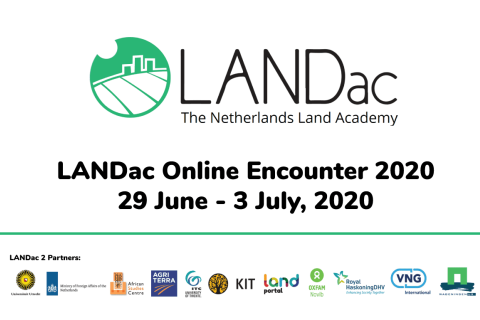Covid-19 pandemic has further worsened India’s hunger and malnutrition woes, more so for the millions of informal workers, now struggling to meet two ends in their rural homes, post the mass migration from their place of works, during lockdowns. Their embedded informality over labour, land, housing tenure, has uprooted and shaken them with loss of income, occupation and habitat, multiplying their already entrenched nutrition vulnerability.
Given the already acknowledged multidimensionality of nutritional problem and its significant connection to immunity, further oversight or negligence, implicates a heavy toll on these de-facto nation builders, as a very fast expanding COVID19 infestation, now swiftly shifting from urbanites and well offs to the rural poor. With World Bank estimating more people falling back into poverty with a worst economic prediction for the region and an already increased food prices, hunger net is ominously hovering on a population, already suffering from hidden hunger, the micronutrition deficiency.
India ranks much lower at 192 in the 2019 Global hunger Index, below its poorer neighbors, with documented poorer malnutrition level among the rural poor, agriculture labourers and migrant workers, pregnant and lactating mothers and the children.
Without, urgent timely and integrated nourishment through supplemental nutrition, special care and institutional rehabilitation, the infestation of this cohort will be rampant while their malnutrition translating to a heavy toll on the future GDP. With the relevant loss to GDP, estimated between 4% to 8%, it may undo the impetus intended via post-covid revival and reform packages.
Corona lockdown has suddenly made visible the poverty and vulnerability of the millions of migrant workers. Their informality is not limited to their urban workplaces; back in their rural homes, where they are headed now, they are also informal labourers and farmers.
These landless agriculture labourers, tenants and small farmers are the rural food producers, city-makers, urban manufacturers and service providers, who feed the nation, take care of the citizens in their homes and nurture its health and nutrition. However, they, together constituting more than half of India’s population, remain ultra-vulnerable to hunger and hidden hunger, thanks to their informal and insecure tenure. They are the hardest hit with their women and children during the Covid-crisis.
The declaration of extra allocation of cereal and pulses for the next three months to about 810 million people under the Pradhan Mantri Gareeb Kalyan Yojana with ration cards reflects the appreciation of this hunger by the Government. With studies indicating exclusion and inclusion errors as well as leakage in PDS, and estimating a low share of PDS grains reaching the intended, most of these vulnerable groups, seem to be, however, run the risk being excluded.
To overcome, ration-card limitation, Government has announced two months free food to additional 80 million migrant workers, without card. Though temporary and not well-balanced, it should at least improve the outreach of covid-response food ration, better than 86 percent, that is reported by a recent survey. Adequate caution and leakage-plugging, however, is called for, with participation of local governance institutions and civil society members.
The exclusion challenge, unfortunately, also plague the acclaimed DBT scheme, PM KISAN. While the Finance Minister announced 91.3 million farmers to have received the Covid-instalment, the quoted survey shows the outreach to just 24 percent. Considering the number of farmers as per Agriculture Census, 2015-16, PM-KISAN net still excludes 4 out of every 10 farmers. Also not included are 144 million agriculture laborers (Census, 2011) and about 25 million tenants (NITI Aayog, 2016), in absence of land records, eligibility criteria of the scheme.
The nature, outreach and performance of the food and cash transfer schemes and the persistent hunger and malnutrition of these vulnerable call for a more holistic nutritional response. And the expanding Covid-crisis hitting harder on these informal workers, demands these measures to be expeditious and inclusive.
The target population is converged in rural India, where the unfinished land reform agenda and changed farming imperatives and agrarian relations have increased informal tenancy along with fallowing of land. With about 25 million ha fallow land available and efficiency of small farms well documented in terms of higher production and net income, formalization of tenancy focusing on small farmers can be a big first leap forward.
This lockdown hunger is not the only worry. Post-COVID, access to safe and nutritious foods would be a question mark if adequate policy measures are not taken in ensuring satisfactory production, aggregation and marketing while also making the food available to the vulnerable population.
The Pathways forward
Land leasing reforms to promote small holder farming: Evidences suggest that small farms, remain the most adaptive, demonstrating higher efficiency in terms of income and production than larger farms. However, highly pervasive and increasing tenancy has weakened Indian agriculture reducing total production, by depriving tenants’ access to credit and other entitlements.
Implementation of Model Land leasing Act, 2016 developed by the NITI Aayog, can offer security of tenure to existing rural tenants as well as to the returnee migrants willing to farm. This would potentially trigger productive utilization of land and labour and augment farm and food production, by enhancing access to formal credit and farm-entitlements.
Gram Panchayats can be empowered to lead village-wise listing of landless and potential tenants among the returnee migrants, willing to farm along with enumeration such allow lands. Kudumbashree in Kerala has demonstrated such mechanism to support collective farming by women groups even through informal leases. Legitimately, Panchayat can also facilitate convergence of rural employment guarantee scheme, MGNREGS for land development while Livelihoods missions can create opportunities of Women groups around farm value chain thereby augmenting rural income and local availability of farm-inputs and processed nutritious food.
Strengthening small-farm diversification and local food value chains: Small family farms, globally and in India are known to absorb more labour, while intensifying and diversifying production system in small areas, when their land tenure is secured. This can easily shoot up production of pulses, millets, tubers, vegetables, fruits, and livestock-products viz. egg, milk and meat to make. Availability of these food, rich in micronutrients locally is critical to boost nutritional status of women and children already suffering hidden hunger due to constrained production and the supply chain disruption of such foods during Covid19.
Post-COVID agriculture package announced by GOI, can be made nutrition enabled, with such steps while also promoting local production and value chain development around nutritious foods, thereby generating more formal employments and income locally for farmers, women and their collectives: SHG and FPOs.
Supporting non-timber forest produce collection, value addition and marketing by the tribal women collectives following recognition of their forest rights as per Forest Rights Act, 2005 and mobilizing support from state livelihood missions and ongoing forestry projects, can increase income and critical cash flow among the vulnerable tribal communities. Recognition of forest rights over Community Forest Resources (CFR), will help women in foraging forest for collection and consumption nutritious forest foods, with positive health impacts, at free of cost. Enhanced forest tenure security and women access and control over forest will also trigger sustainable biodiversity conservation.
With a nutrition-orientation, micro, small and medium enterprises can boost up productions along local nutrition value chains in rural India and thereby improve access to safe and nutritious diets, while also creating local avenues for employment.
IT- enable monitoring for evidence based policy: Data from the National Family Health Survey (NFHS) and the latest Comprehensive National Nutrition Survey (CNNS) reveal that malnutrition is the leading inhibiting factor for a healthier India and its potential link to land tenure. Morbidity and mortality arising from infectious diseases hampers country’s GDP and economy and subsistence living of the poor. It is time to coordinate building a robust IT platform to collect and consolidate relevant data, with focus on these vulnerable groups, for informed decision making and inter-sectoral synergy.
At a time when hunger and malnutrition are already sitting pretty on the ultra-vulnerable informal workers; COVID pandemic has compounded their burden. Like one-health approach, a holistic approach spanning land-agriculture-nutrition is what required to nourish these undernourished and accordingly the policy incentives must be repurposed.
There is an urgent need to go beyond the cash and food transfers imperatives and invest in building nutrition-resilience pathways for coping with COVID19. Formalizing land and labour relations in rural areas and localizing production and value chain development of nutritious food through small farming and women-collectives can be a dignified way to add assets, incomes and food in the hand of informal workers. This would also help the nation builders now converging in rural India to trigger a rural revival, as Gandhi would have dreamt.
Choudhury is Founder and Coordinator, NRMC-Center for Land Governance; Kar is recipient of Global Nutrition Leadership Award- 2019 and Padhee is Country Director- India of ICRISAT. Views expressed are authors own.
This blog is a contribution to the LANDac Online Encounter 2020.





